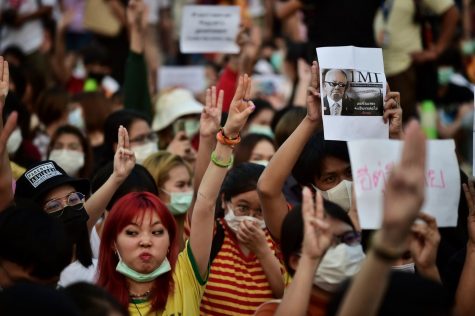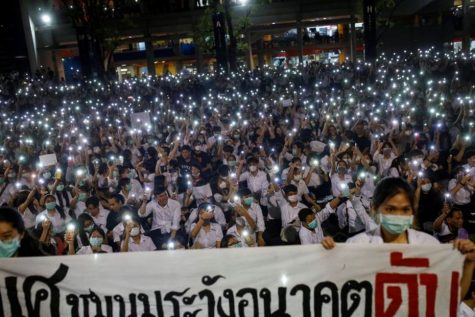What is happening in Thailand?
Gen Z is leading the fight for democracy.
November 2, 2020

A crisis and the need for democracy continue to rage in Thailand, as another civil revolt will be marked down in the country’s history. This time protestors are not backing down. Thailand has been named an official constitutional monarchy since 1932 after the military took control of the country, previously ruling as an absolute monarch for more than 700 years. But even after the extermination of authoritarian power, the country still remains an unstable mix of democracy and authoritarianism.
Thai youth today are calling out the systems that condition citizens to adhere to authority without question, starting in places like schools, where children are taught and disciplined for any criticism of a person of a higher title. This can be a teacher, a parent, police officers, military leaders, the prime minister and eventually the king.
This type of system has been in place for so long, it is the reason why most of the protestors are students and aged around 25. It also explains why this topic is taboo to older Thai generations who have been raised in the system. For many decades, it has always been the youth that called out the government, such as the violent crackdown ordered by the government on Thammasat University student protests in 1976.
Now in 2020, social media has become a crucial tool in the Thai pro-democracy movement, spreading ideas throughout Thailand faster than ever. Animes like Hamtaro and the hand gesture from the The Hunger Games series have been adopted by the young protestors as symbols of dictatorial defiance.

The ongoing protest dates back to June, after the disappearance of Sitanan Satsaksit, a democratic activist who was exiled and kidnapped. He is not the first nor the last activist to face this. The uproar continues as people take to the streets of Bangkok for the last 3 months, increasing by the thousands.
Last month, protesters called for the resignation of Prime Minister Prayut Chan-o-cha, and confronted the monarchy by showing the pro-democracy symbol at the royal motorcade, resulting in a violent response from the government. Chan-o-cha ordered a state of emergency, and water cannons, tear gas and paint were used on the young protestors, as well as arresting dozens of activist leaders and over 80 peaceful protestors that risk facing long and severe sentences.

As of Oct. 24, the prime minister has refused to resign and another protest was scheduled for Oct. 26, where the youth-led protestors will continue to push for resignation and a reformation of the constitution.
What do we do? Practice your freedom of speech, share, talk and be aware. Freedom of speech is a right every human deserves, and we use every day to speak our minds and criticize flaws in the American system. This right is protected under the principles of our democratic government. It is a fundamental value that some around the globe are robbed of. Use your voice for others fighting the same rights as yours and help a human rights movement flourish and grow.










